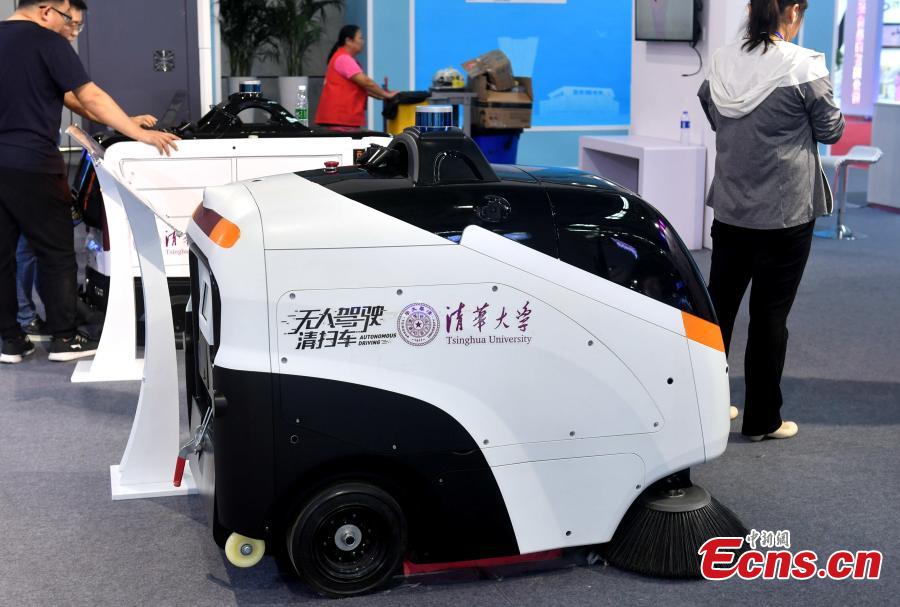Summit demonstrates China's leapfrog into digital ascendance
 0 Comment(s)
0 Comment(s) Print
Print E-mail Xinhua, May 7, 2019
E-mail Xinhua, May 7, 2019

China on Monday sounded another heartening note for its development of information technologies, as both companies and the government rush to harness this nationwide tech boom to raise efficiency, buoy public satisfaction and even tackle corruption.
The second Digital China Summit opened Monday in eastern China's Fujian Province, shedding light on the latest information technologies that have penetrated the country's government, industries and society.
The Chinese government has expected information technologies to nurture new economic engines and upgrade old industries as the country shunts from the high-speed economic growth to the path of high-quality development.
Huang Kunming, a member of the Political Bureau of the Communist Party of China (CPC) Central Committee, in a keynote speech at the summit called for advancing the building of a digital China and smart society, stressing the role of information technology in promoting high-quality development.
Huang, also head of the Publicity Department of the CPC Central Committee, said China's advantages in internet technology innovation, technology application and as a huge market should be transformed into advantages in developing a digital economy.

The official called for achieving breakthroughs in core technologies, enhancing protection of intellectual property rights, advancing information infrastructure construction and narrowing digital gaps between urban and rural areas.
A report reviewing the country's digital development in 2018 was also issued at the summit, pointing to rapid growth in sectors including electronic information manufacturing, software service, communications and big data.
The report published by the Cyberspace Administration of China said the country last year recorded more than 9 trillion yuan (1.3 trillion U.S. dollars) in online retail. China's digital economy reached 31.3 trillion yuan in scale, accounting for one-third of the national GDP in 2018.
Provincial-level e-government platforms have also slashed time for getting government permits by an average of 30 percent, noted the report.
Trendy technologies from driverless vendor vehicles and facial recognition security checks to 5G networks are being used at the event in the city of Fuzhou. A number of tech companies are displaying their cutting-edge products including Baidu's driverless vehicles, Huawei's AI chip "Ascend" and Foxconn's "future factories."
Pony Ma, CEO of China's Internet giant Tencent, said at the summit that the company, by working with Fujian police, has used its facial recognition technology to help 1,000 families find missing family members in the past two years.
Hu Xiaoming, president of Ant Financial that runs the popular online payment network Alipay, said at the event that one of every four Chinese now handles government services on Alipay, making it the country's largest platform that offers access to government services.
ByteDance, known for its short video sharing app TikTok, also demonstrated its poverty-relief project at the summit, which it said has trained 10,000 people from 505 impoverished Chinese counties and helped sell 1.94 million yuan worth of agricultural products.
Information technologies have drawn more attention in recent years, particularly in China's industrial sectors, where they are credited with revving up automation in traditional factories and creating new industries.
As China steps up its industrial upgrade, which will result in inefficient industries being phased out, booming e-commerce is believed to have cushioned the job market by creating a deluge of new positions from online shopping "guides" to scooter-riding couriers of take-out food.
Meituan, an online food delivery platform in China, said it draws 31 percent of its riders from phased-out industries. The company has 2.7 million courier riders, boosted by China's booming online food delivery.
According to the China Academy of Information and Communications Technology (CAICT), China's digital economy provided 191 million jobs last year, marking a yearly increase of 11.5 percent.






Go to Forum >>0 Comment(s)